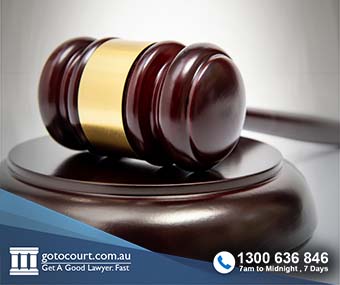Power of Attorney in Queensland
Giving a power of attorney to someone can be a difficult but important decision. The giving of a power of attorney to someone else allows that person to make personal, and possibly financial and medical decisions for you. This page deals with powers of attorney in Queensland.
Legislation
In Queensland, a power of attorney is governed by the Powers of Attorney Act 1998. The Act sets out two types of power of attorney:
- General power of attorney under Chapter 2 of the Act; and
- Enduring power of attorney under Chapter 3 of the Act.
General power of attorney
Under the Act, a person (the principal) may authorise one or more persons (the attorney) to do for them anything that can lawfully be done by the principal. The principal may state in the documents when and on what occasions the power is exercisable.
General powers of attorney are usually used for short term purposes, such as the principal going overseas for an extended holiday and leaving a power of attorney to ensure decisions can be made on the principal’s behalf.
The Act also allows a ‘power of attorney given as security’ to be given to a person who is entitled to an interest in the principal’s financial affairs, including titles to land and other property. This kind of power of attorney is irrevocable unless the attorney who holds interests in the principal’s title agrees.
A power of attorney must be in the approved form which can be accessed online. The document must be signed by or with the authorisation of the principal and the principal must be present.
When an attorney undertakes their duty, they must have proof of their power of attorney. This can be done by having a copy signed by the principal, a lawyer, a justice of the peace, a commissioner of declarations, a notary public or any other professional as defined under the Act. Once all pages of the document have been certified, the attorney may use it as their authority.
Powers of attorney and their instruments revoking the power of attorney can be registered. You can find more about this here.
Revocation of a general power of attorney
A general power of attorney can be revoked in a number of circumstances. These include the following:
- Operation of the law or the terms of the power of attorney (such as a specified period of time);
- The principal revokes the power by advising the attorney or by deregistering a registered power of attorney;
- The principal obtains impaired capacity which means they no longer have the capacity to understand the legal consequences of the power of attorney. This does not include power of attorney given as security;
- Death of the principal or the attorney; or
- The attorney resigns, has impaired capacity or becomes bankrupt or insolvent.
Enduring power of attorney
Enduring powers of attorney are similar to general powers of attorney but have significant differences regarding who can become the attorney and what can be included in the power.
According to the Act and for the purpose of an enduring power of attorney in Queensland, an attorney must be:
- At least 18 years old; and
- Not a paid carer or a health provider for the principal; and
- Not a service provider for residential services where the principal is a resident; and
- If the person would be given power for a financial matter, they cannot be bankrupt or taking advantage of the laws of bankruptcy as a debtor.
An attorney can also be the public trustee, a trustee company, or for personal, non-financial matters, the public guardian.
An enduring power of attorney allows the principal to authorise the attorney to do anything regarding their financial or personal matters that the principal could lawfully do themselves. It also provides terms or information about exercising the power and will not be revoked if the principal obtains impaired capacity.
An attorney must exercise their power according to the enduring power of attorney document. The document may specify which circumstances and occasions a power for a financial matter is exercisable. However, when the documents do not specify when and how the power should be used, then the power becomes generally exercisable on the discretion of the attorney once the enduring power of attorney is made.
Attorneys must maintain proof that they have power of attorney. This is done in the same manner as a general power of attorney. Once all of the pages of the power of attorney document are certified, the attorney can use the document as proof of their powers.
Enduring powers of attorney can also be registered.
Advance health directives
The principal may give directions about current or future health matters, including care, and appoint one or more attorneys to exercise power for a health matter. This is called an advance health directive or AHD.
The health directive may give direction to the attorney(s) to consent to the future health care of the principal, including whether a life sustaining measure is to be withheld or withdrawn. It may also authorise an attorney to physically restrain, move or manage the principal, including being physically restrained or otherwise for the health and safety of the principal.
An advance health directive is not revoked as a consequence of the incapacity of the principal and it takes precedence over other general health aspects of an enduring power of attorney.
An advance health directive operates when the principal has impaired capacity. It works as if the principal gave that direction or had capacity to make that decision.
As advance health directives have a significant impact on an impaired person’s health, there are specific rules under section 36 of the Act which limit when life sustaining measures can be withheld or withdrawn.
An attorney’s power under the directive is exercisable during any or every period the principal has impaired capacity.
Importantly, under section 37 of the Act health directives cannot authorise euthanasia or any other breach of the Criminal Code. This can include accelerating death, aiding suicide, or otherwise.
Making an enduring power of attorney
An enduring power of attorney can only be made if the principal understands what it is, and what it does. Enduring powers of attorney contain the following:
- What specific powers the attorney has and how they may exercise their power;
- When the power begins;
- Once the power begins, how the attorney has the power to make or have full control over the principle’s personal or financial matters;
- That the principal may revoke the enduring power of attorney at any time when they have the capacity to do so;
- That the enduring power of attorney continues despite the principal having impaired capacity; and
- If the principal does not have the capacity to revoke the enduring power of attorney, they cannot oversee the exercise of the enduring power of attorney.
To make an advance health directive as part of the Enduring Power of Attorney, the principal must understand the nature and likely effects of each direction in the health directive. The principal must also understand that a direction only operates when the principal has impaired capacity to do so, the principal may revoke a direction at any time they have capacity and that any time the principal is not capable of revoking a direction, the principal is unable to effectively oversee the implementation of the direction.
The enduring power of attorney must be in the approved form. There is a short form for a single attorney and a long form for numerous attorneys and more detailed power of attorney documents.
The document must be:
- Signed by the principal or by someone on their behalf with authority; and
- Signed and dated by an eligible witness.
If an enduring power of attorney is signed by the principal, the witness must provide a certificate stating that the principal signed the document, and at the time they appeared to have the capacity necessary to make the power of attorney.
Similarly, if the enduring power of attorney it is signed by a person on behalf of the principal, they must include a certificate from the witness showing that the principal gave instructions to the person to sign the document on the principal’s behalf, that the person signed it in the presence of the principal, and that it appeared at the time the principal had the capacity to make that decision.
An advance health directive must also include a certificate dated and signed by a doctor which states that at the time, the principal appeared to the doctor to have the capacity to make the directive.
A doctor who witnesses an advance health directive must not be a witness to the enduring power of attorney, an attorney of the principal, a relation of the principal or of an attorney, a beneficiary of the principle’s will, or a person signing the advance health directive on behalf of the principal.
An enduring power of attorney is only effective if the attorney has accepted the appointment by signing the document.
Revoking an enduring power of attorney
Enduring powers of attorney can be revoked in the following way:
- The terms of the enduring power of attorney specify its operation for a period of time; or
- If the principal has the capacity to revoke the enduring power of attorney, they advise their attorney(s) that the enduring power of attorney is revoked, and if it is registered, deregisters it. The revocation must be in written and approved form, which is found here; or
- The principal creates a new enduring power of attorney or advance health directive, which, like wills, will supersede the older version; or
- Death, marriage, or civil partnership of the principle; or
- Divorce of the principal if the enduring power of attorney gives power to the divorced spouse; or
- Resignation, impaired capacity, bankruptcy or insolvency, or death of the attorney; or
- The attorney becomes a paid carer, health provider or service provider of the principal.





